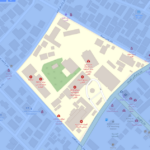Tehran treads carefully as it navigates the complexities of regional conflict.
- Iran and its allies are considering retaliation against Israel for recent killings.
- A full-scale war is not desired by Iran or Hezbollah due to economic and political constraints.
- Hezbollah is cautious about escalating its conflict with Israel, fearing significant losses.
- Iran’s new president faces domestic pressure and economic challenges, complicating military decisions.
- The U.S. has warned Iran against major attacks, emphasizing potential consequences.
In the wake of recent killings attributed to Israel in Beirut and Tehran, Iran and its allies are contemplating how to respond without igniting a full-scale war. With a new presidential administration in Tehran and a struggling economy, Iran cannot afford a direct conflict with Israel, especially one that could involve the U.S. The painful memories of the eight-year war with Iraq still linger, leading Tehran to prefer indirect confrontations through foreign militias. nnHezbollah, the Iranian-backed Lebanese group, is also wary of escalating its ongoing conflict with Israel. Despite possessing a significant missile arsenal, Hezbollah’s leadership is cautious after witnessing Israel’s devastating actions in Gaza. Recent Israeli airstrikes have targeted key figures in Hezbollah, prompting a need for retaliation without crossing the line into war. nnBoth Iran and Hezbollah are aware of the risks involved, as Israeli intelligence penetrates their operations. Analysts suggest that while attacks against Israel may be imminent, a week of international diplomacy and military deployments could help mitigate the situation. The U.S. has issued warnings to Iran, indicating that a major attack could severely impact its economy and political standing. nnIn Beirut, residents express heightened anxiety about the potential for conflict to spread, with Hezbollah’s leader vowing to retaliate at a strategic time. However, the current economic collapse in Lebanon has made the population wary of another war. nnIran’s recent embarrassment over the killing of Hamas leader Ismail Haniyeh in Tehran has added pressure to respond, but the country faces a legitimacy crisis at home. The newly elected president has promised to improve relations with the West, complicating any military response. nnWhile Iran has previously engaged in direct confrontations with Israel, such as the drone and missile attacks in April, the current situation calls for a more calculated approach. Iran may opt to utilize allied militias across the region to orchestrate attacks, but this increases the complexity and risks of retaliation. nnAs tensions rise, both Iran and Hezbollah must navigate the delicate balance of responding to provocations while avoiding a broader conflict that could have dire consequences for the region.·
Factuality Level: 7
Factuality Justification: The article provides a detailed analysis of the geopolitical situation involving Iran, Hezbollah, and Israel, supported by various sources and expert opinions. However, it contains some speculative elements and opinions that could be interpreted as bias, particularly regarding the motivations and potential actions of the involved parties. While it presents factual information, the speculative nature and the presentation of certain perspectives may detract from its overall objectivity.·
Noise Level: 7
Noise Justification: The article provides a detailed analysis of the geopolitical situation involving Iran, Hezbollah, and Israel, discussing the implications of recent events and the potential for conflict. It includes insights from political scientists and references to historical context, which adds depth. However, while it presents relevant information, it could benefit from more actionable insights or solutions, and some sections may feel repetitive.·
Key People: Ismail Haniyeh (Hamas political leader), Ali Fadlallah (Beirut-based independent political scientist), Hassan Nasrallah (Hezbollah leader), Sami Nader (Director of the Institute of Political Science at Saint Joseph University), Joseph Bahout (Director of the Issam Fares Institute for Public Policy and International Affairs at the American University of Beirut), Masoud Pezeshkian (Iranian President), Ayatollah Ali Khamenei (Supreme Leader of Iran)
Financial Relevance: Yes
Financial Markets Impacted: The potential for conflict between Iran and Israel could impact oil prices and regional stability, affecting global markets.
Financial Rating Justification: The article discusses geopolitical tensions that could lead to military conflict, which historically influences financial markets, particularly in the oil sector and related industries.·
Presence Of Extreme Event: Yes
Nature Of Extreme Event: Armed Conflicts and Wars
Impact Rating Of The Extreme Event: Major
Extreme Rating Justification: The article discusses recent killings attributed to Israel, including the assassination of a senior Hezbollah commander and a Hamas leader in Tehran, which have escalated tensions significantly. The potential for retaliation and the risk of a broader conflict in the region indicate a major impact on stability and security.·
Move Size: No market move size mentioned.
Sector: All
Direction: Neutral
Magnitude: Medium
Affected Instruments: No
 www.wsj.com
www.wsj.com 





